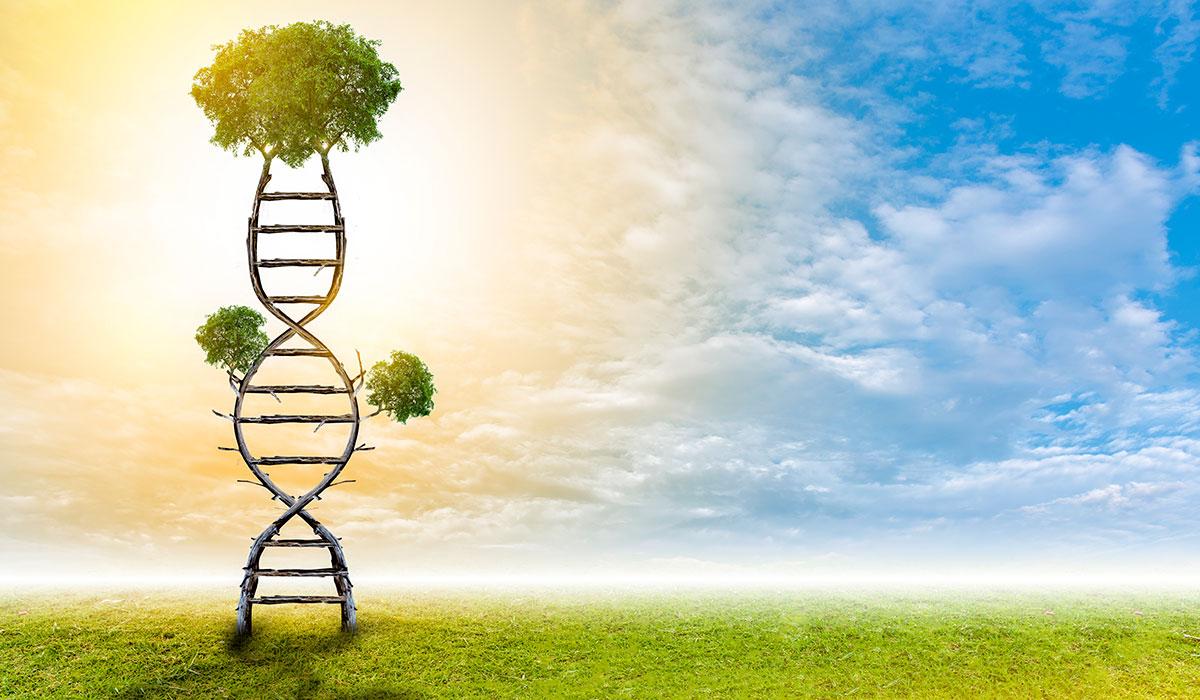
If you type “genealogy” into a Google search, the news stories that appear do not feature the traditional family tree that grandma used to work on. Instead, you’re much more likely to read stories of how databases populated by DNA test results—a feature of contemporary genealogical study—have led law enforcement officials to solve several cold cases. For example, in 2018 the “Golden State Killer” in Sacramento was found after over 30 years when police used a free genealogy and DNA database called GEDMatch to find the long-time perpetrator of several crimes.
And while this has opened up several debates about the privacy rights of user data, it is also indicative that the field of genealogy is certainly not what it used to be. According to a recent article published by the Washington Post, new technologies available to genealogists have “...opened up new horizons into the unknown and forgotten past.”
“I can’t stress enough that this isn’t just about family trees anymore,” said TMCC Reference and Genealogy Librarian Suzanne Malek. “Everyone wants to know where they came from, and genealogy, especially with the technology available today, can enable people to do that in ways that weren’t possible before.”
Genealogy is the second most popular hobby in the United States, right after gardening. Perhaps it’s not surprising that TMCC’s Elizabeth Sturm Library hosts a Genealogy Lab that’s also an affiliate of the Family History Library in Salt Lake City, which is the world’s largest genealogical library. In 2019, TMCC’s Genealogy Lab hosted 47 expert speakers for 1,226 students, staff and community members who attended the class.
Who can attend these labs? Anyone in the TMCC community: TMCC students, faculty, staff and the general public. Labs are held every Friday 11:30 a.m.–2 p.m., and they are free, without exception.
What is a Genealogy Lab?
If this all seems like Greek to you—family trees, DNA testing and lineage societies— welcome to the 21st Century when marrying the mysteries of the past with our present historical moment is not only possible, it’s also popular. No matter what your background or situation, Malek has amassed an impressive collection of resources that can help you find what you want to know about yourself and your family’s past.
In fact, for two years, TMCC’s Genealogy Lab has been helping students, faculty, staff and community members find out more about themselves through a robust collection of sources and its weekly “lab.” Malek chose this day and time to accommodate student schedules and to take advantage of library resources that aren’t used as often as on other days of the week.
Each Genealogy Lab begins with Malek highlighting particular books from the genealogy collection. Then, she introduces a guest speaker who is an expert in his or her respective field and who, by the grace of technology, offers virtual and real-time seminars to attendees. “We had one guest speaker who works on Angel Island,” Malek said. “He was able to give us a walking tour of this place where immigrants—particularly from Asia—came to the United States.”
Following the guest speaker’s presentations, attendees either work in groups or independently on their own genealogy projects. These, said Malek, run the gamut of genealogical research, but each share academic rigor and a precise research methodology. “In addition to helping students with their genealogy, we also help them with their writing skills. We teach them how to index their work, how to create a table of contents, and how to evaluate research sources,” she said.
This is called “bibliographic instruction” and it’s a skill that can certainly help students, no matter their major or prospective career field. “It’s important to know the difference between a primary and a secondary source, and how to properly cite those sources,” said Malek.
Many Genealogies
If it’s not your grandmother’s “family tree”, then what is genealogy? The answer, these days, is that it can be pretty much anything you want it to be.
Interested in genetics? Tap into your DNA and trace your family line via double-helix. Are you into cooking and family recipes? Learning more about your “Food Culture History” enables you to chronicle what your family was doing through the lens of what they were eating. Interested in places more than people? You can trace the past of a particular piece of property by using genealogical research methods and real estate records. Fascinated by photography? Genealogy can help you identify the people and places in those mysterious photographs without names or dates.
The goal of genealogical research is as unique as each person, and the possibilities are endless. Two of Malek’s students tracked down their biological parents thanks to new DNA testing. Others have discovered relatives they didn’t know existed. Each discovery is celebrated, and everyone is welcome.
“The lab is completely free,” said Malek whose dedication to assisting students, faculty, staff and community members with their genealogical projects is unparalleled. “You don’t have to register, and if you miss a lab, I record every session and send it out to attendees afterward,” said Malek.
To learn more about TMCC’s Genealogy Lab—and how to start your own search into your family’s past—visit the Genealogy LibGuide or call 775-673-8260.






